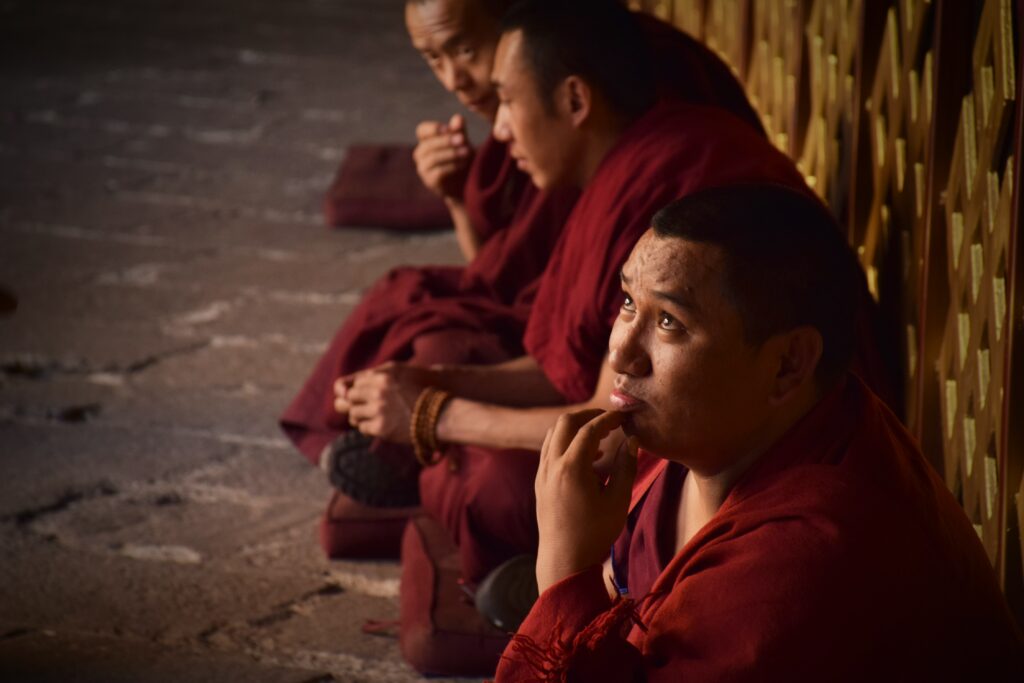Facing Mortality
Growing up the way I did, there was an acceptance as fact of the myths associated with Christianity. My mom or grandmother, I forget which, had some picture or knick-knack that bore the phrase: “Only one life, ’twill soon be past; only what’s done for Christ will last.”
When I was 18, I believed that I was “called” to preach. And I did for a while, hard though that might be to imagine, and even attended seminary. Eventually, after becoming an atheist, I was forced to analyze the idea of being “called” in different terms.
I’ve always been rather “meta” focused, at least in my spare time. Whatever I may have believed (or disbelieved) throughout my life, there’s a part of me that has always come back to thoughts of the impermanence of life.
Studying the ancient heathens, we know that they had a few different (non-conflicting) ideas about death. There are instances in which reincarnation is referenced, but it’s kind of rare. There was, of course, Valhalla, and Hel’s realm. And, most consistent with indigenous peoples in general, they often seemed to think that the dead – at least some part of them – remained attached to their graves or to some part of the land around them.
What’s cool about these people, though, is that they – like we moderns – knew that there were things we just didn’t know, and probably weren’t likely to figure out anytime soon. So, in general, they concerned themselves more with the here and now, that which they did know and to which they could exert some degree of control.
Heathens have a book of proverbs called “Hávamál,” the name translating to “sayings of the High One.” In it, there are these verses:
76. Cattle die,
kinsmen die,
the self dies likewise;
but the renown
for the one who gets good fame
dies never.
77. Cattle die,
kinsmen die,
the self dies likewise;
I know one thing
that never dies:
the repute of each of the dead.
Verse 76 deals with, obviously, fame, but “good fame” (as opposed to infamy!) Ending up in a poem or a saga, having one’s stories continue to be told… in that way, a person lives on.
Verse 77 uses the word “repute” (in this translation) for the original word dómr, which generally gets translated to “judgement.” (Our word “doom” comes from this.) In this case, it is how we were judged by those around us, and it is in some ways a final judgement; if I die today, I have only what I have done thus far with my life for those who remain to reckon me by.
Based on the average life expectancy of white males in Tennessee, I have about 20.5 years left. That’s it… two decades. Less time than I’ve spent at my current job.
It is not uncommon at this point in my life for me to view things in terms of their lasting effects. In my day job, I created the first-ever Internet destination for “chattanooga.gov,” and my career has taken me back there in recent months. After I’m gone, will people continue to say my name occasionally when they speak of the history of Chattanooga’s online presence?
People who have kids… well, kids remember their grandparents, and sometimes their great-grandparents. Even that, though, doesn’t seem to be what it used to be. I appreciate how Mormons place a spiritual emphasis on genealogy, and I think that heathens should do the same.
I have a passion to have the voices of my ancestors heard, but I am ever-encroaching on the point at which my voice, too, will be silenced. So I work to be remembered, and I try to live in such a way that my “repute” will be good.
That is one of the many ways in which my study of the ancestors has changed my thinking. I stopped worrying about “heaven” and the afterlife and such things, and replaced it with the very practical view that it is in what we do for other, real-life, living human beings that counts. I live the way I do because I understand that nothing is more important than what I do for and how I behave with other people. If I die today, my team at work will remember, for a while, and will speak well of me (I hope!) Not as much because of my skills, but because of how I treated them.
And if there is an afterlife, then I hope to stand proud among that “line of my people, back to the beginning” as one who did them proud more often than not.




Post Comment